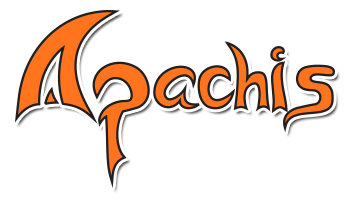When a person buys a domain and registers themselves, it requires the users’ information like name, contact number, email address, and home address. To keep this information private, one thing that we must consider after registering to a domain is what is Domain privacy protection?
Every domain name has publicly available details on the domain owner. In the WHOIS database, the owner’s information is publicly visible. Every domain name owner is required by the regulations and laws governing domain names to provide their contact information.
Most people do not want their confidential contact information exposed to the public, which could be accessed by scams, hackers, and others. So it is the domain owners, and that’s the origin of domain privacy protection.

We at Apachis.com provide this service to our users. For further information, read below.
Benefits of domain privacy protection
While getting the idea of privacy protection while creating a blog or website, one must consider the domain privacy protection. But you may encounter questions like why is domain privacy important? So here, we will discuss some of the benefits that domain privacy protection offers to your domain or website.
As a fact, full domain privacy and protection offer you complete authority over your web addresses while also safeguarding you against online fraud, spamming, and domain name piracy. Along with this, it also gives your domain name its own private and unique email address. Further, you can also have the option to forward, filter, or block any email completely.
Here is a list of some of the benefits of domain privacy protection
- Restricting the opponents, being able to find out which domains you own
- Sending you an SMS message whenever someone attempts to modify your domain.
- Preventing thieving of one’s identity
- Blocking the transfers of domains that are illegal
- To prevent spamming, fraud, or other undesirable emails
- Avoid annoying telephone calls and mailings
What is the extent to which domain privacy protection protects site owners?
It all depends on what you want to secure and who you want to protect it from. As previously stated, WHOIS will prevent automated address collectors from obtaining your information, but a determined attacker will seek out other means to determine who the true owner is.
Let’s suppose you’re the owner of a company. If your business address is already displayed on your website, there’s no need to hide it from the Whois database because it’s already publicly available.
If you create a website about your domestic life that you discuss with people all over the world, you’ll probably want to hide your address, and you’ll need private security for your web address to do so.

What is the procedure for obtaining domain privacy?
Once you have decided to go with domain privacy protection and have given the right answers to yourself to the questions like, do I need privacy protection for my domain? The next thing to do is to look for the procedure for adding privacy protection to your domain.
Adding Whois security to your domain name is an easy and simple method. The procedure differs for each registrar, but there are only two alternatives for adding it: during registration of the domain or after that.
Here’s how to keep your Whois information private with Apachis:
During the registration of domain:
We at apachis.com provide domain privacy protection even during the registration of the domain. We will add the Domain privacy protection by default once you’ve picked your desired domain name.
If you do not want to get privacy protection while registering the domain, you can remove it. A pop-up notice will appear, informing you that deleting domain privacy would make your information public. And then, by continuing, you will be granting permission to the Apachis to make your private information public.
Adding privacy protection afterwards:
You do not need to worry about leaving privacy protection off when registering a domain; you can certainly change your decision and add it afterwards. If you can establish privacy from the start, take advantage of it!
Your information will be visible to the public if you don’t use privacy settings right away. You can use the tools to look for previously mentioned domain ownership information, transfer histories, and historical sales details.
If you do not accept the domain privacy protection from the Apachis, and then your current domain becomes spammed, you should get domain privacy. If you have privacy protection in place, you will see a significant reduction in email and phone spam.
Conclusion:
For everyone buying a domain, make sure to enable domain privacy protection, as it will keep you away from any spamming or hacking of a website. It will offer you the confidentiality to keep your private information like name, contact number, emails, and home address safe and secure. So this was all about What is Domain privacy protection?
Further, if you have any queries about What is domain privacy, you can ask me in the comment section.


